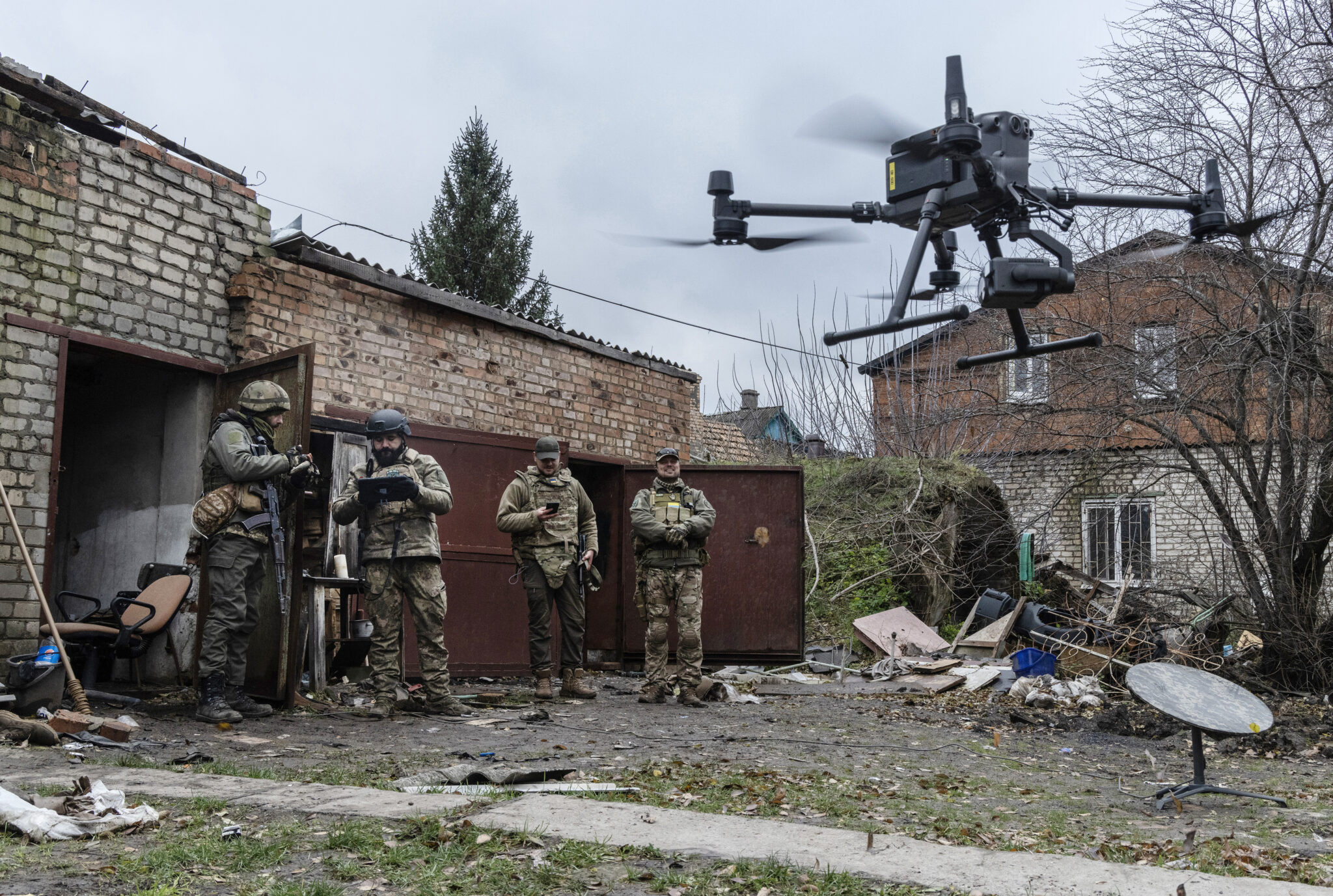Over the past few decades, we have witnessed how public faith is faltering, not only in the established leadership in the Western democracy, but in the concept of democracy itself. A major contributing factor to this erosion is the failure of decision makers to uphold the values they extol, being fundamental for our democracies, especially regarding human rights. This aspect is not only true domestically, but perhaps even more on the international arena where the collective community is supposed to uphold the enshrined democratic values guiding our decision-making globally. One such example among many is how both the US and the EU have addressed the democratic shortcomings of Azerbaijan and Russia in light of the wars in Nagorno-Karabakh and Ukraine respectively. The disparity has even increased due to the Ukraine War as the 2022 energy crisis in Europe has propelled Azerbaijan, an outspoken autocracy, to be heralded as a “strategic partner for the EU.” This article examines how the perceived double standard of Western Institutions, such as the EU, towards Russia and Azerbaijan have emboldened an autocratic Baku, whilst risking undermining emerging democracy in Armenia.
“Us First” in an Age of Universal Values: Realpolitik Reigns Supreme
Despite the advancement of our democratic systems and its core values concerning the universality of justice and human rights, decision-making still follows a strict power-centered “us first” policy. This is hardly surprising as we tend to first and foremost look after our own interests, individually, nationally and internationally. However, this selfishness has a price which grows exponentially when applied collectively and has a perilous effect on our democratic systems, which in the modern world are indeed based on universal equal rights. Such an inwardness corrodes and hollows out the backbone of democracy, namely the public’s faith in the system itself. This corrosion does not only pertain to domestic politics but is highly valid, as it grows in proportion with the globalization of our world, interlinking us much tighter to each other in every aspect: political, financial, climate, health, etc.
Thus, the pursuit of realpolitik at the expense of democratic values and human rights causes tangible contradictions within the very cornerstones of our functioning democracies, which in turn undermine people’s belief in them. One such example is how the victory of an autocratic Azerbaijan in the 2020 War over the Armenian populated Nagorno-Karabakh actually risks undermining the emerging democracies in Armenia and Georgia. Turning a blind eye to how an outspoken autocratic regime in Azerbaijan could not only run over the Armenian population of Nagorno-Karabakh, but also willfully threaten Armenia, has made many Armenians to question the double-standards of the Western world, especially in the light of the response to the war in Ukraine. The approach by the Western states to Azerbaijan and Nagorno-Karabakh are, however, only one of many examples in a list that is too long to mention exhaustively: Turkey’s assault in Syria, Saudi Arabia’s war in Yemen, abandoning Afghanistan’s people to the Taliban, etc.
None of this is new though in the past recorded three millennia of our civilization, we tend to care for ourselves first, sometimes even when it means disregarding our principles. That fact notwithstanding, there are two major changes affecting our perception: the enshrining of human rights in international laws as guiding beacon for our policymaking (at least seemingly) and the IT revolution and the information availability, providing almost instant information about ongoing encroachments and wrongdoings around the world, allowing us to compare them and their consequences with our own realities. The latter has a clear impact on the former as we have concrete references to how politicians, nationally and internationally, make promises and extol the importance of democratic values only to neglect or abandon them if they do not converge with their interests.
Defend or Sacrifice Democracy: Ukraine/Russia vs Armenia/Azerbaijan
A striking example of this disparity and perceived hypocrisy is how the USA and EU, mainly in regard to the role they have in the OSCE Minsk Group as a mediator in the Nagorno-Karabakh Conflict, have dealt with the 2020 Armenia/Azerbaijan War and its aftermath, compared with the Russia/Ukraine war in 2022. Reading the news and the statements by US and EU officials, there is a roaring emphasis on the assault by an autocratic Russia on a young and developing democracy in Ukraine and the pledge to collectively defend the universal rights of the Ukrainian people, a highly commending stance by the international community. The response is of course not solely in regard to democratic values alone, but certainly about the EU’s perceived threat by Russia. Although Azerbaijan does not pose a threat to EU as Russia currently does physically, its encroachment of democratic values, human rights, security and peace as a member of the European community, EU’s Eastern Partnership Program and OSCE cause reason for concern. However, while the democratic dimension was not only almost entirely absent in the Armenian/Azerbaijani war of 2020, it has actually become even more conspicuous since Russia’s invasion of Ukraine in 2022. From the appraisal by NATO’s General Secretary, Jens Stoltenberg, of Azerbaijan’s president Ilham Aliyev, to EU’s gas deal with Azerbaijan, and all media reporting in-between (with few criticizing exceptions) have noticeably ignored the state of affairs in an outspoken autocratic Azerbaijan and what it entails for the Armenian population of Nagorno-Karabakh.
The disparity between addressing Russia and Azerbaijan becomes even more salient once we look at the reports on the state of democracy in each respective country. Russia scores 19/100 on an overall democracy index, making it a “moderate autocracy” while Azerbaijan, scoring only 9/100, is labelled a “hard autocracy” according to Freedom House. Reporters Without Borders places Russia on the bottom segment of its list, on place 155/180 just after Azerbaijan on place 154. To compare, Ukraine scores 61/100 on democracy index and places 106/180 for media freedom, while Armenia scores 55/100 on democracy index and places rather high, 51/180 in media freedom.
The lack of media freedom as a reflection of the level of democracy and the criticism thereof has been especially tangible in this regard. The criticism against Russia and how Moscow has restricted press freedom officially, even penalizing damning reports about the war in Ukraine, has been reported in media, acting as a solid basis for political criticism and condemnation of the war. The same has hardly been done in regard to Azerbaijan. While Yerevan introduced official amendments to curtail negative official reports about the ongoing war, drawing justified criticism, the access for foreign journalists and independent media was seemingly unrestricted. Azerbaijan, on the other hand, severely limited the access of foreign press and, in the rare cases where they were allowed into the country, they were often assigned “minders” who would accompany their movements and reporting. This resulted in a heavily regime-controlled media reporting from the Azerbaijani side, almost entirely channeling the regime narrative. This manipulation has continued in the aftermath of the war, where, as part of the Azerbaijan’s infamous “Caviar Diplomacy,” Baku has continued to disseminate its narrative by arranging all-exclusive trips for foreign journalists.
The criticism of Europe’s posture towards Azerbaijan is nothing new and is mainly ascribable to its significance as an energy resource. Although Azerbaijan’s reserves of natural gas are not among the largest in the world, the pace of its extraction and their geopolitical positioning make Azerbaijan an important alternative to Russia as energy supplier. This is an insight which has hardly escaped the regime in Baku. As Europe’s dependency on Russian gas has become painfully evident in the ongoing energy crisis in 2022, the cost of turning to alternative sources has become less important, especially if the costs pertain to “abstract” notions such as human rights and democratic values. This is where the EU’s approach to Azerbaijan becomes even more troublesome because Baku’s leveraging of its energy resources to subjugate democratic values can be thought of as a parallel to that of Moscow’s policy throughout the ongoing war in Ukraine. Yet, the response to respective policy is almost diametrical, as Europe’s condemnation of Moscow’s policy also implies finding substitutes, among which Azerbaijan is viewed to be well-positioned. The immediate pressing needs of national security in form of soaring energy costs and the prospects of a freezing winter in Europe seem to eclipse any notion of criticism of the lack of democratic values in Azerbaijan, factors which go hand in hand when chastising Russia for using gas “as an instrument of blackmail,” to quote European Commission President, Ursula von der Leyen.
Setting a Price Tag on Democracy and Human Rights
Once these aspects are factored in, it becomes quite difficult to avoid the perceived deliberate erasure of the flagrant democratic shortcomings of Azerbaijan, whilst every article and statement in regard to Russia makes sure to mention them. The lack of similar criticism of Azerbaijan has almost a self-reinforcing effect, as it paves the way for politicians to unimpededly praise and portray the regime in Baku as a strategic partner. In a sense, the EU is signaling that autocracy and disregard of democratic values can indeed pay off if the price is right. This aspect becomes even more disturbing as the Armenian population in Nagorno-Karabakh is facing an imminent threat of total ethnic cleansing under the watchful eyes of OSCE and EU. While one-third of the enclave has already been ethnically cleansed in the wake of the 2020 war, Baku continues to insist on abolishing any “special rights” for the Armenian population of Nagorno-Karabakh. In a recent statement, President Aliyev made this issue clear adding that “Just as the rights of Azerbaijani citizens are protected, so are theirs.” Given the abovementioned facts about the appalling state of democracy in Azerbaijan, ranking it the second worst autocracy (after Belarus) in Europe, makes Aliyev’s statement as an outright punishment and a dim insight into a dark future awaiting the Armenians of Nagorno-Karabakh.
Yet, Western states, institutions and media continue to turn a blind eye to the obvious. While “Defending Ukraine means defending democracy” and the war is used to demand for long-term democracy support policies, the faltering state of democracy in Azerbaijan is conspicuous by its absence on the political arena. This policy is flagrant when it comes to experts and analysts discussing the path forward for the Nagorno-Karabakh conflict which by no means has been resolved. The issue of democracy, or rather the total lack of it, lies at the core of this discussion. There are quite many articles arguing for a way forward based on either regional autonomy or the guarantees for the right of the Armenian population as peers to the rest of the Azerbaijan’s population. These approaches have, however, one obvious flaw, namely that they demonstratively avoid the elephant in the room, the lack of the very democracy which is supposed to guarantee these rights. In reality, this leaves us with one concrete choice, namely the remedial secession of Nagorno-Karabakh through the exercise of their right for self-determination. It should be noted that even subsequent articles dismissing the argued right for self-determination not only continue to avoid the question of democracy, as in the case of the work of Vasif Huseynov, but much like the rhetoric of an autocratic Baku, outright argue that the Armenians of Nagorno-Karabakh, as a marginal part of the population, should have no rights at all, as with the published thoughts of M. Hakan Yavuz.
This blatant ignoring of the facts about the state of democracy in Azerbaijan is, sadly enough, only one example of how the politicians and decision-makers corrode the notion of democracy as we know it. A recent report from Freedom House compiles a rather troubling image of how democracies, both existing and emerging, are faltering. The report concludes that: “The liberal international order will only be as strong as the democracies that defend it. Unfortunately, too many democracies or would-be democracies in the Nations in Transit region have been weakened by the corrupt and illiberal practices that characterize governance in hybrid regimes. Committed democrats can no longer allow these practices to go unchallenged.” The latter observation is equally applicable to the international community and how the approach to the Nagorno-Karabakh conflict by international organisations, e.g. NATO and The EU, is emboldening an autocracy in Azerbaijan whilst potentially harming emerging democracy in Armenia.
Corroding Western Democracy: Choosing Whose Rights to Defend
Given the replete facts about the state of democracy in Azerbaijan, one is justified in questioning whether decision makers would have been equally at ease in praising an autocratic Azerbaijan had media reports been more critical and substantial, as we have seen in the case of Russia versus Ukraine. A lack of nuance and critically reporting on Baku’s narrative has not only contributed to glossing over the democratic shortcomings of Azerbaijan, but it has helped aid the marginalization Armenians’ rights in Nagorno-Karabakh. In such a manner, an uncritical media has contributed to such policymaking via its “bothsidesism” or “constrained objectivity”. This leads to a media that has fallen into an all to well-known trap which journalists are warned about: “If someone says it’s raining and another person says it’s dry, it’s not your job to quote them both. Your job is to look out the window and find out which is true.” Unfortunately, media broadly has done little to scrutinize the deeper, more substantial factors in the Nagorno-Karabakh Conflict, instead engaging in citing Baku’s narrative in an easy “while one side claims this, the other side says that.”
That said, the state of affairs in Azerbaijan, as illustrated in the abovementioned NGO reports, are well-known and substantiated. Yet, they seem to be ignored all together. Donny Miller has said “In the age of information, ignorance is a choice.” Unfortunately, that is exactly the choice politicians have been making when realpolitik considerations collide with democratic values and human rights. Our civilization has come a long way during the past century by enshrining democratic and human rights into international law and the principles governing our lives. Sadly enough, the policymaking and the interests of “us first” continue to reign supreme in choosing whose and which rights to defend while ignoring others for the sake of our own gains, corroding public trust in what Western democracy represents and stands for.














